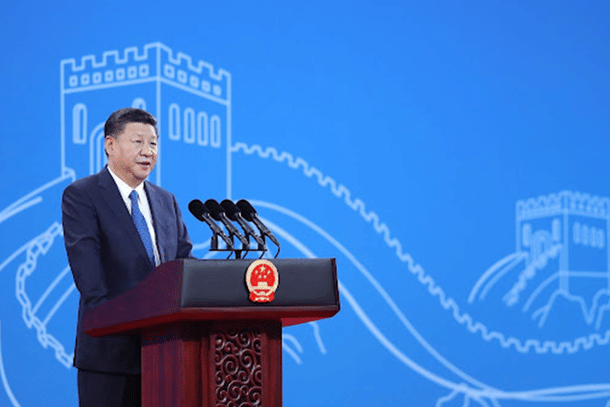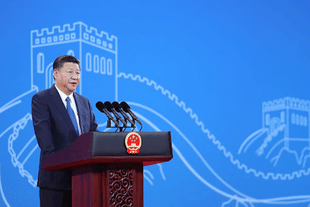World
China's Belt And Road Initiative Is Running Into Huge Losses, Over $78 Billion In Loans Re-Negotiated
Swarajya Staff
Apr 17, 2023, 09:33 AM | Updated 09:39 AM IST
Save & read from anywhere!
Bookmark stories for easy access on any device or the Swarajya app.


Bad loans worth over $78 billion have hit China's $1 trillion Belt and Road Initiative (BRI) infrastructure finance programme in the past three years.
China's scheme had turned it into the top bilateral creditor, but it seems to have now become a financial burden for Beijing and its largest banks.
Chinese institutions re-negotiated or wrote off about $78.5 billion in loans for infrastructure projects such as roads, railways, ports, and airports globally between 2020 and March 2021, says the research organisation, Rhodium Group.
Rhodium recorded $17 billion in re-negotiations and write-offs in 2017-2019, which is now surpassed as companies' re-negotiated debts worth over $70 billion.
The total scale of BRI lending over the past decade is not officially known. However, AidData's Brad Parks estimates it at around $1 trillion.
Beijing has provided significant "rescue loans" to over 150 countries participating in the BRI, to prevent large borrowers from experiencing sovereign defaults.
A recent study by AidData, World Bank, Harvard Kennedy School, and Kiel Institute for the World Economy has revealed that sovereign bailouts to developing countries amounted to $104 billion between 2019 and end of 2021. For the longer timeframe between 2000 and 2021, the total stands at $240 billion.
BRI borrower countries are facing insolvency due to global growth slowdown, rising interest rates, and high debt levels. China has been accused of blocking debt restructuring negotiations by western creditors of these struggling countries.
BRI re-negotiations and write-offs reduced in 2022 after a surge in 2020-2021 due to the pandemic. Experts, however, suggest that this doesn't imply any enhancement in China's loan book's inherent quality.
The signs were visible early on, as early as 2019, but back then, no one was able to factor in the pandemic and the economic crisis in the small economies, due to the Russia-Ukraine war.





